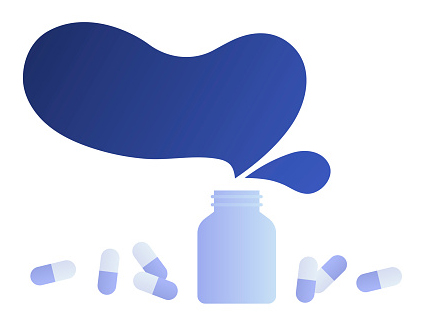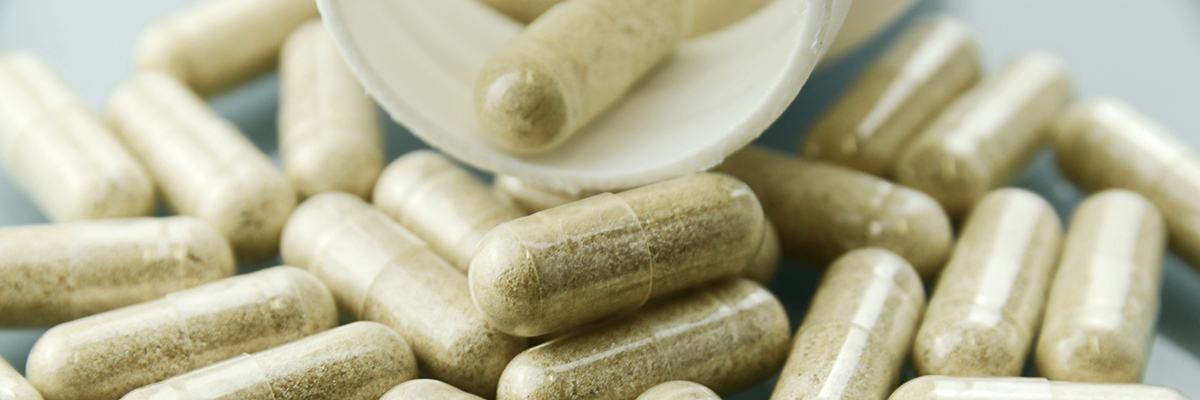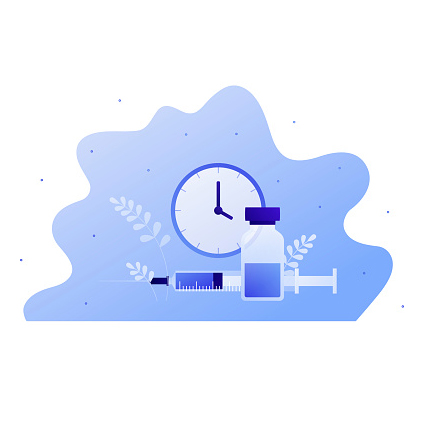Disclaimer: Some links on this page are affiliate links that may save you a bundle off normal pricing due to select partnerships. This adds ZERO cost to you, and can only pass potential savings. We may receive a commission if you make a purchase through these links. It’s a win-win! See our full disclaimer here.
New supplements and nutraceuticals seem to appear on the market every day, and some of these substances gain popularity very quickly due to their benefits. It’s important to have a balanced diet that’s dense in nutrients and minerals, and many people take supplements to provide the nutrients their everyday diets lack. The right nutrients can do more than boost your metabolism and help your cardiovascular system; they can even improve your skin and help prevent the lines and wrinkles common to aging.
If you’re interested in adding a supplement to your daily diet that holds anti-aging properties and skincare benefits, Resveratrol may be right for you. This natural ingredient offers a great way for people of all ages to improve their skin, but it boosts even more health benefits. However, it’s crucial to purchase such supplements from a quality manufacturer. Weakened or diluted options abound – and, unfortunately, many suppliers include additives that can actually hurt the absorption process. As always Compounding Pharmacy of America has a deep dive that’s giving you all the answers.
If you’re here to find our recommended Resveratrol product, please follow the link below.
Resveratrol 500 mg
Resveratrol as a Supplement
So, what is Resveratrol? And, more importantly, how can it help you? This supplement is a polyphenol, a substance that acts similarly to an antioxidant, preventing the cells of the body from taking damage from oxidation. Consuming a diet rich in antioxidants can protect cells and provide several other health benefits, including lowered risk of heart disease and better immune system functions.
However, it can be tough to get all the minerals and nutrients your body needs from diet alone. Certain foods that do have Resveratrol, like peanuts and pistachios, are allergy triggers and high in calories. Even adding these ingredients to your diet may not be enough to get the full spectrum of benefits Resveratrol offers. A quality supplement – made from the purest ingredients – can ensure you’re getting optimal levels of Resveratrol for your body and skin.
Resveratrol isn’t just about skincare, though it’s a first line of anti-aging defense. For instance, those suffering from diabetes, depression, or heart trouble may see results far beyond skin care by taking a more powerful grade of this amazing supplement. Also, these benefits can all work together for better health. When your body is functioning better by having more regulated blood sugar levels and improved cardiovascular health, skincare organically is improved as well.
Benefits of Taking Resveratrol
Current research suggests that a diet rich in antioxidants like Resveratrol can help protect the body’s various systems from within, shielding it from many of the negative effects caused by poor diet as well as providing a significant health boost that can lead to increased energy levels and boosted resilience against serious health conditions. As more benefits of this amazing substance are seen, research into Resveratrol and its benefits continue.
Resveratrol benefits are still being researched, but the available data indicates many valuable uses for this substance and potential for much more. A few of these improvements include anti-aging benefits for skin, blood sugar stabilization, and even improvement for moods. It’s rare to find a supplement that offers such a spectrum of benefits in one high potency option, and it actually does more than just help people with long-term health issues like diabetes and Alzheimer’s.
What Are Antioxidants?
Polyphenols are a subcategory of antioxidants, which are substances found in many different foods that fight oxidation in the human body. Oxidation happens without us having much defense against it. It is essentially cell damage caused by oxygen cells, which produces free radicals and starts chain reactions throughout the body that can be very damaging if left unchecked. Antioxidants protect the body by stopping these chain reactions and preventing the damage they cause. Resveratrol acts in a similar way.
You can find these vital nutrients in many foods, specifically fruits and vegetables like spinach, berries, broccoli, carrots, peanuts and much more. However, diet isn’t always enough, especially for high potency Resveratrol benefits.
Adding antioxidants through supplement as well as diet can help prevent the formation of free radicals and stop the dangerous chain reactions these particles cause in your body. Polyphenols like Resveratrol prevent oxidation, but they also provide many other surprising benefits as well.
Skincare Benefits of Resveratrol
Your skin endures quite a bit of punishment each day from typical wear as well as exposure to the sun, wind, and substances in your environment. Polyphenols like Resveratrol are beneficial for skin health because they aid in repairing this damage, strengthening the skin, and boosting its resilience against everyday damage. If you live in a harsh climate or seem to have difficulty maintaining healthy skin, Resveratrol may offer a noticeable boost to your skin’s health and even curtail some signs of aging.
If you plan on using Resveratrol to protect your skin and promote skin cell regeneration, you can take Resveratrol capsules orally to ensure you’re getting the proper levels of Resveratrol – without the allergen triggers or extra calories.
Anti-Aging Properties of Resveratrol
In laboratory animal tests, polyphenols like Resveratrol have displayed anti-aging properties and even increased the lifespans of some organisms. While this effect on humans requires a bit more research before it can be confirmed as fact, Resveratrol seems to have the ability to activate certain genes that prevent the effects of aging from manifesting as rapidly as usual.
Heart Health Benefits
Resveratrol and other polyphenols have antioxidant properties that can improve pulmonary and circulatory functions. Resveratrol could help lower your risk of a heart attack due to the fact that it can lower LDL cholesterol (the “bad” cholesterol) levels in the blood, making it more difficult for blood clots to cause a heart attack. Resveratrol, like other polyphenols, can also reduce inflammation. Improved circulation can help the body fight against skin damage, too.
Protection Against Diabetes
One of the major driving forces behind development of diabetes is insulin resistance, a bodily condition that prevents sensitivity to insulin, the hormone responsible for reducing blood sugar levels in the body. Research shows that Resveratrol may help prevent insulin resistance and preserve the body’s ability to naturally reduce blood sugar levels. Insulin control helps the body fight against the daily challenges that cause premature aging.
Protection for Nerve Cells
Degenerative neurological conditions like Alzheimer’s disease develop when nerve cells in the brain develop plaque. This damages them over time, interferes with brain functions, and can spread rapidly. Proteins called beta-amyloids cause plaque buildup on brain cells, and Resveratrol interferes with the formation of these proteins. Resveratrol may be able to hinder the development of nerve cell plaque which in turn lowers the risk of developing Alzheimer’s disease. Though it’s too early to call it an answer to Alzheimer’s, it’s a great early step to protect yourself today for the future.
How to Take Resveratrol Regularly
Though everyone’s body is different, consuming a daily supplement of Resveratrol has positively impacted the lives of many people.
If you want to start adding Resveratrol to your diet, you can find many Resveratrol sources from your local grocery market – just avoid the low-quality supplements they may offer. The most readily available food source that can add Resveratrol to your diet is red grapes. The skins of red grapes contain Resveratrol and other polyphenols. You can also find Resveratrol in many grape products, such as grape juice and even wine. It’s also possible to absorb Resveratrol from eating peanuts and some berries, such as mulberries. Eating foods rich in antioxidants offers many health benefits, and you’ll quickly learn that the foods with the highest levels of Resveratrol also contain other nutrients that can offer positive health benefits as well.
While adding new foods to your diet typically only poses problems if you have allergies or sensitivities to the foods that contain your target nutrient, the amounts you receive from food may not be enough to accomplish your goals. To take advantage of the benefits Resveratrol offers, be sure to consider a high dose option.
Using Resveratrol as a Supplement
If you plan on taking Resveratrol as a supplement, determine the appropriate dosage for you to start with, considering your overall health and your goals. When used in clinical applications, 1500 milligrams per day can help non-alcoholic fatty liver disease, and Alzheimer’s patients may receive up to 1,000 milligrams twice daily for mild to moderate Alzheimer’s. If you’re planning on taking Resveratrol as a dietary supplement for its anti-aging and skincare benefits, most experts recommend taking one 500 mg capsule twice daily.
Resveratrol supplements are best absorbed when taken at meals, so adding it to your breakfast or lunch regimen is an easy way to remember it and ensure it’s absorbed throughout the day.
Appropriate dosage size hinges on body type, weight, and overall health. The best Resveratrol supplement for you ultimately comes down to your goals for taking the supplement, your overall health, and your dietary restrictions and food sensitivities.
If you want to learn about another anti-aging supplement option read our Guide to NAD and NMN
Find Quality Medications and Supplements to Boost Health
Puritan Pride offers medication and supplement options to protect your health. Some people have sensitivities or allergies to the kinds of foods that naturally contain Resveratrol, but we go the extra mile to protect our customers. The supplements, vitamins, and minerals we offer have been quality tested up to fifteen times. Expect each product we offer to be consistently pure and potent.
Our supplements offer the safest and most convenient way to get appropriate levels of this crucial supplement. In a time when it’s more important than ever to focus on American products, know that Puritan Pride has been manufacturing supplements from the highest quality ingredients – all from the U.S. – since 1973.
To start taking supplemental Resveratrol for your daily diet, trust the experts at Puritan Prideto help you achieve your health goals. We are as invested in your health as you are – and we have the quality products to prove it.
Resveratrol 500 mg
- Supports heart health by supporting blood flow and vascular function**
- Antioxidant support**
- Combats free radicals**
- Helps support sugar metabolism**
Chief Operating Officer, The Compounding Pharmacy of America
Matthew Poteet, Pharm.D. graduated with Honors from Lee University with a Bachelors of Science in Biological Science. After his undergraduate training, he completed the Doctor of Pharmacy program at Mercer University Southern School of Pharmacy, graduating in 2004. Dr. Poteet has spent much of his pharmacy career on staff at two of the most prestigious academic teaching hospitals in the Southeast; Emory University in Atlanta and Vanderbilt University Medical Center in Nashville. At these institutions he received extensive experience and training in sterile products compounding.
He returned home to East Tennessee in 2010, where he has held the position of Pharmacy Director at two sterile products pharmacies in Knoxville. Matthew lives in Knoxville with his wife, Chris. Dr. Poteet is Tennessee’s first Board Certified Anti-Aging Pharmacist by the American Academy of Anti-Aging Medicine.









 Subscribe to Our Newsletter
Subscribe to Our Newsletter


